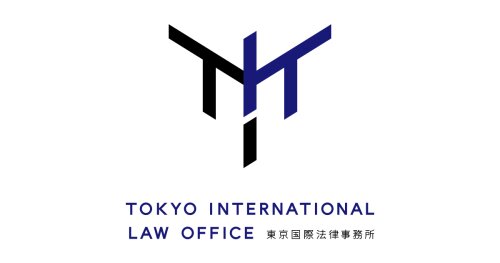Best Franchising Lawyers in Japan
Share your needs with us, get contacted by law firms.
Free. Takes 2 min.
Or refine your search by selecting a city:
List of the best lawyers in Japan
About Franchising Law in Japan
Franchising in Japan is a well-regulated sector, reflecting the country's robust legal framework and a dynamic market. Franchising relationships are primarily governed by the Small and Medium-Sized Retail Promotion Act and the Antimonopoly Act, which aim to protect fair competition and ensure transparency. Franchises are commonplace in various industries in Japan, such as food and beverage, retail, and service sectors. Understanding franchising laws is crucial for both franchisors and franchisees to ensure a successful and compliant business operation in Japan's competitive market.
Why You May Need a Lawyer
There are several scenarios in which seeking legal advice on franchising becomes necessary. Determining the terms of a franchising agreement can be complex, and legal guidance ensures that both franchisor and franchisee rights are protected. Disputes over contract breaches, intellectual property rights, or compliance with Japan's regulations often require the expertise of a legal professional. Additionally, navigating the registration process, negotiating contracts, or dealing with termination issues can benefit from legal counsel to avoid costly mistakes and legal pitfalls.
Local Laws Overview
Japan's franchising legal landscape is shaped by a few key laws:
- Small and Medium-Sized Retail Promotion Act: This law requires franchisors to provide potential franchisees with a disclosure document detailing crucial business information before concluding a franchise contract.
- Antimonopoly Act: This act oversees fair trading practices and prohibits restrictive business practices. Franchisors' activities must comply with these regulations to avoid penalties.
- Consumer Contract Act: It protects consumer interests, which can be applicable in franchise contracts involving end-users.
Frequently Asked Questions
What is the general process for establishing a franchise in Japan?
The process involves conducting market research, developing a franchise model, fulfilling disclosure and registration requirements, and negotiating agreements with potential franchisees.
Are there any specific disclosure requirements for franchisors in Japan?
Yes, franchisors must provide a disclosure document that includes information about the business, financial statements, and the terms of the franchise agreement to potential franchisees.
How can I protect my trademark and intellectual property as a franchisor in Japan?
Registering trademarks and patents with the Japan Patent Office is essential. Ensure that franchise agreements clearly outline the use of intellectual property to protect your rights fully.
Do franchise agreements in Japan need to be in Japanese?
While not legally required, it is highly recommended to have agreements in Japanese to ensure comprehension by all parties and adhere to enforceability in local courts.
What fees are typically associated with starting a franchise in Japan?
Common fees include initial franchise fees, royalties, marketing contributions, and legal costs. These should be transparently outlined in the franchise agreement.
What role does the Fair Trade Commission play in Japanese franchising?
The Fair Trade Commission enforces the Antimonopoly Act, thus regulating fair business practices within franchising arrangements.
How can disputes between franchisor and franchisee be resolved?
Dispute resolution options include negotiation, mediation, or arbitration, with litigation as a last resort. It is wise to outline dispute resolution procedures in the franchise contract.
How long are franchise agreements typically valid in Japan?
The length can vary, but franchise agreements usually range from five to ten years, subject to renewal terms agreed upon by both parties.
Are there any specific business structures recommended for franchising in Japan?
Many franchisors choose to establish a Kabushiki Kaisha (KK) or a Godo Kaisha (GK), which are equivalent to corporations or LLCs, providing a balance of liability protection and operational flexibility.
What are the consequences of non-compliance with franchise laws in Japan?
Violations can lead to fines, to void of contracts, or business shutdowns, making compliance with franchising laws critically important.
Additional Resources
Additional resources that may be helpful include:
- Japan Franchise Association (JFA): Offers guidance and networking opportunities for franchisors and franchisees.
- Japan External Trade Organization (JETRO): Provides information and support for foreign businesses entering Japan.
- Fair Trade Commission of Japan: A key regulator in ensuring competitive practices within franchising.
Next Steps
If you are considering legal assistance in franchising:
- Consult with a legal expert specializing in franchising to understand your obligations and rights.
- Prepare a list of questions or concerns specific to your situation to discuss during the consultation.
- Engage with local resources like the Japan Franchise Association to gain further insights and support.
Lawzana helps you find the best lawyers and law firms in Japan through a curated and pre-screened list of qualified legal professionals. Our platform offers rankings and detailed profiles of attorneys and law firms, allowing you to compare based on practice areas, including Franchising, experience, and client feedback.
Each profile includes a description of the firm's areas of practice, client reviews, team members and partners, year of establishment, spoken languages, office locations, contact information, social media presence, and any published articles or resources. Most firms on our platform speak English and are experienced in both local and international legal matters.
Get a quote from top-rated law firms in Japan — quickly, securely, and without unnecessary hassle.
Disclaimer:
The information provided on this page is for general informational purposes only and does not constitute legal advice. While we strive to ensure the accuracy and relevance of the content, legal information may change over time, and interpretations of the law can vary. You should always consult with a qualified legal professional for advice specific to your situation.
We disclaim all liability for actions taken or not taken based on the content of this page. If you believe any information is incorrect or outdated, please contact us, and we will review and update it where appropriate.
Browse franchising law firms by city in Japan
Refine your search by selecting a city.















